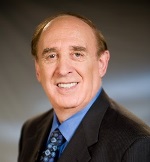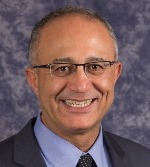ADVISORY ARTICLE
By Harold Kerzner, Ph.D. and Al Zeitoun, Ph.D.
Florida and Maryland, USA
INTRODUCTION ___________________________________________________
Effective project leadership practices today require management by walking around (MBWA). Some authors refer to this as management by wandering around or walk-the-halls management. MBWA is a random or unstructured approach to understand the team members and their work efforts better and to identify ways to influence and motivate them to perform at a higher level than expected.
As shown in Figure 1, it creates a better working relationship between the project manager and team members as well as improving trust, boosting employee morale, increasing loyalty, improving engagement efforts, and increasing productivity. Workers will believe that the project manager cares about them.

(https://pixabay.com/photos/engineer-engineering-teamwork-4941144/)
Figure 1. MBWA and Engagement
History of MBWA __________________________________________________
The origin of the term MBWA has been traced back to Hewlett-Packard in the 1940s. The practice became an important component of the “HP Way” of managing. The concept was reintroduced in 1982 by Tom Peters and Robert Waterman in their book, In Search of Excellence: Lessons from America’s Best-Run Companies. Several companies that have successfully implemented the practice of MBWA included Hewlett-Packard, Apple, Disney, General Electric, Walmart, Pepsi, Toyota, Corning Glass, and 3M.
Unfortunately, there were still many companies that believed in the old school of management and were somewhat fearful of change until we approach the turn of the century.
In the late 1990s it did not seem extraordinary that managers should manage by walking about. But in the 1950s many white-collar managers turned their offices into ivory towers from which they rarely emerged. Edicts were sent out to the blue-collar workforce, which they rarely met face-to-face. The outside world was filtered through to them via a secretary who, traditionally, sat like a guard dog in front of their (usually closed) office door.[1]
Even project management practices in the early years suffered by not seeing the benefits and need for practicing MBWA. Some PMs viewed workers as just a “cost” and to be removed from the project as quickly as possible. The project managers would remain in their offices and knew the workforce only by employee badge number and how much money they were spending on the projects. The importance of the need for workforce collaboration practices and effective engagement efforts were at a minimum.
More…
To read entire article, click here
How to cite this article: Kerzner, H., Zeitoun, A. (2025). The Need for Walk the Halls Project Management, PM World Journal, Vol. XIV, Issue III, March. Available online at http://pmworldlibrary.net/wp-content/uploads/2025/03/pmwj150-Mar2025-Kerzner-Zeitoun-Walk-the-Halls-Project-Management.pdf
About the Authors

Harold Kerzner, Ph.D., MS, M.B.A
Senior Executive Director for Project Management
International Institute of Learning
New York & Florida, USA
![]()
Dr. Harold Kerzner is Senior Executive Director for Project Management for the International Institute for Learning (IIL). He has an MS and Ph.D. in Aeronautical and Astronautical Engineering from the University of Illinois and an MBA from Utah State University. He is a prior Air Force Officer and spent several years at Morton-Thiokol in project management. He taught engineering at the University of Illinois and business administration at Utah State University, and for 38 years taught project management at Baldwin-Wallace University. He has published or presented numerous engineering and business papers and has had published more than 60 college textbooks/workbooks on project management, including later editions. Some of his books are (1) Project Management: A Systems Approach to Planning, Scheduling and Controlling; (2) Project Management Metrics, KPIs and Dashboards, (3) Project Management Case Studies, (4) Project Management Best Practices: Achieving Global Excellence, (5) PM 2.0: The Future of Project Management, (6) Using the Project Management Maturity Model, and (7) Innovation Project Management.
He is a charter member of the Northeast Ohio PMI Chapter.
Dr. Kerzner has traveled around the world conducting project management lectures for PMI Chapters and companies in Japan, China, Russia, Brazil, Singapore, Korea, South Africa, Canada, Ireland, Germany, Spain, Belgium, Poland, Croatia, Mexico, Trinidad, Barbados, The Netherlands, Sweden, Finland, Venezuela, Columbia, United Arab Emirates, France, Italy, England, and Switzerland. He delivered a keynote speech at a PMI Global Congress on the future of project management.
His recognitions include:
- The University of Illinois granted Dr. Kerzner a Distinguished Recent Alumni Award in 1981 for his contributions to the field of project management.
- Utah State University provided Dr. Kerzner with the 1998 Distinguished Service Award for his contributions to the field of project management.
- The Northeast Ohio Chapter of the Project Management Institute gives out the Kerzner Award once a year to one project manager in Northeast Ohio that has demonstrated excellence in project management. They also give out a second Kerzner Award for project of the year in Northeast Ohio.
- The Project Management Institute (National Organization) in cooperation with IIL has initiated the Kerzner International Project Manager of the Year Award given to one project manager yearly anywhere in the world that demonstrated excellence in project management.
- The Project Management Institute also gives out four scholarships each year in Dr. Kerzner’s name for graduate studies in project management.
- Baldwin-Wallace University has instituted the Kerzner Distinguished Lecturer Series in project management.
- The Italian Institute of Project Management presented Dr. Kerzner with the 2019 International ISIPM Award for his contributions to the field of project management.
Dr. Harold Kerzner can be contacted at hkerzner@hotmail.com

Dr. Al Zeitoun, PgMP, PMI Fellow
Global Future of Work Executive
Maryland, USA
![]()
Dr. Al Zeitoun is a Future of Work, business optimization, and operational performance excellence thought leader with global experiences in strategy execution. His experiences encompass leading organizations; delivering their Enterprise Digital and Business Transformation; guiding fitting frameworks implementations; and using his empathy, engineering insights, and collaboration strengths to successfully envision new business models and execute complex missions across diverse cultures globally.
In his recent role with Siemens, he was a Senior Director of Strategy responsible for driving the global program management practices, Master Plan governance, and enabling the Strategy Transformation processes and priorities.
In his position, as the Executive Director for Emirates Nuclear Energy Corporation, Abu Dhabi, UAE, he was responsible for creating the strategy execution framework, achieving transformation benefits, governance excellence, and creating the data analytics discipline necessary for delivering on the $40B complex country energy mission roadmap.
At the McLean, USA HQ of Booz Allen Hamilton, Dr. Zeitoun strategically envisioned and customized digitally enabled EPMO advisory, mapped playbooks, and capability development for clients’ Billions of Dollars strategic initiatives. Furthermore, he led the firm’s Middle East North Africa Portfolio Management and Agile Governance Solutions.
With the International Institute of Learning, Dr. Zeitoun played a senior leader and global trainer and coach. He was instrumental in driving its global expansions, thought leadership, and operational excellence methodology to sense and shape dynamic ways of working across organizations worldwide. He speaks English, Arabic, and German and enjoys good food, travel, and volunteering. Dr. Al Zeitoun can be contacted at zeitounstrategy@gmail.com
[1] Guide to Management Ideas. 2003, p146-147. 2p.









